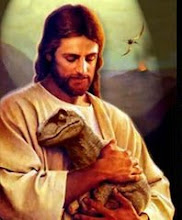I was having a friendly debate with a Christian last weekend and during the debate he bought up the idea that he believes that scientists have faith in our theories (i.e. evolution) the same way that Christians have faith in the fundamental tenets of their religion (i.e. that Jesus was the son of God). It struck a nerve with me because, while it was fairly predictable, it revealed an utter lack of understanding of the scientific process.
In order to address this issue I think it is important to first define what is meant by faith. An appropriate definition of faith is ‘belief in the absence of evidence’. 2 Corinthians 5:7 says ‘we walk by faith and not by sight.’ Even in the bible itself faith is defined as the opposite of ‘sight’, or evidence. In contrast, our entire scientific understanding of the world is based on interpretations of experimental evidence. Our theories are frameworks which allow us to give context to the evidence we find. From this definition of faith it is painfully clear that scientists lack faith.
However, some choose to define faith as merely a belief in an idea. In this context, scientists do have faith. But even with this superficial definition, there would be clear differences between scientific and religious faith. Ask yourself—“Why do you believe what you believe?” The Christian answer is simple—they would say I believe because I have faith. In other words, their belief rests on unprovable propositions and not evidence.
The scientists answer is also simple—they would say I believe because I have seen the evidence and it is compelling, significant and repeatable. The two approaches are fundamentally different. Religious faith rests on belief that is spared the requirements of evidence. Scientific knowledge is entirely and utterly dependant on evidence. Without adequate evidence scientific theories fail.
In conversations with religious people it is apparent that one condition of their faith is that, no matter what the evidence to the contrary, they will not change their beliefs. No matter how much evidence we have that proves evolution, a creationist they will never change their mind that god created the earth and all its creatures. Again, we can draw a contrast with the scientific approach, which is reliant on new evidence. Without new evidence, we would still believe the earth was the center of the universe and that diseases were caused by evil spirits trying to inflict harm on us. In fact, if there were new and compelling evidence that completely dismantled the theory of evolution, most scientists would accept the data and amend (or discard) the theory.
Faith could be defined as belief without evidence or simply belief itself but, regardless of the definition, scientists do not have faith. The whole scientific enterprise is dependant on evidence and reason while religious doctrine would collapse under such rigorous requirements.
Monday, July 7, 2008
Subscribe to:
Post Comments (Atom)
.jpg)



3 comments:
Nice article. It is true that "faith" has multiple definitions which can confuse the issue. I had a discussion with a theist a while back and offered to substitute a different word for "believing without, or even despite, evidence." As of yet he has been unable to supply a substitute.
A related tactic I see occasionally is a charge that not one particular theory, but the entire scientific enterprise is based on "faith" that the universe follows orderly laws in a way that is accessible to scientific investigation. Even Einstein has used this questionable tactic. Once again, this is not the same definition of "faith" which applies to religious beliefs. Scientists have "confidence" that the universe follows orderly laws; confidence based on over half a millenium of observation and investigation.
Quite right. I had a debate with a Christian friend the other night and he pretty much said the same thing. That I have faith in science the same way he has faith in christ. It is so wrong headed its almost comical.
Faith is an excuse to believe things you don’t have any evidence or reason for. Belief in scientific theories is that there is both good reason and good evidence to support the claim. Scientific theories depend upon hypothesis, setting up experiments, trying to falsify the hypothesis and subjecting the finding to peer review.
I found this definition of faith
Now faith is confidence in what we hope for and assurance about what we do not see. This is what the ancients were commended for. By faith we understand that the universe was formed at God’s command, so that what is seen was not made out of what was visible. (Hebrews 11:1-3 NIV)
Is science "seeing is believing"?
If you can't see it, does it not exist?
Does evidence only exist when it is uncovered or Discovered?
Was it not there the whole time waiting for the right time to be uncovered or Discovered?
Does evidence have to be tangible?
Does the imagination exist without translation?
If a question can't be answered by humans does it have to be unanswerable?
Post a Comment